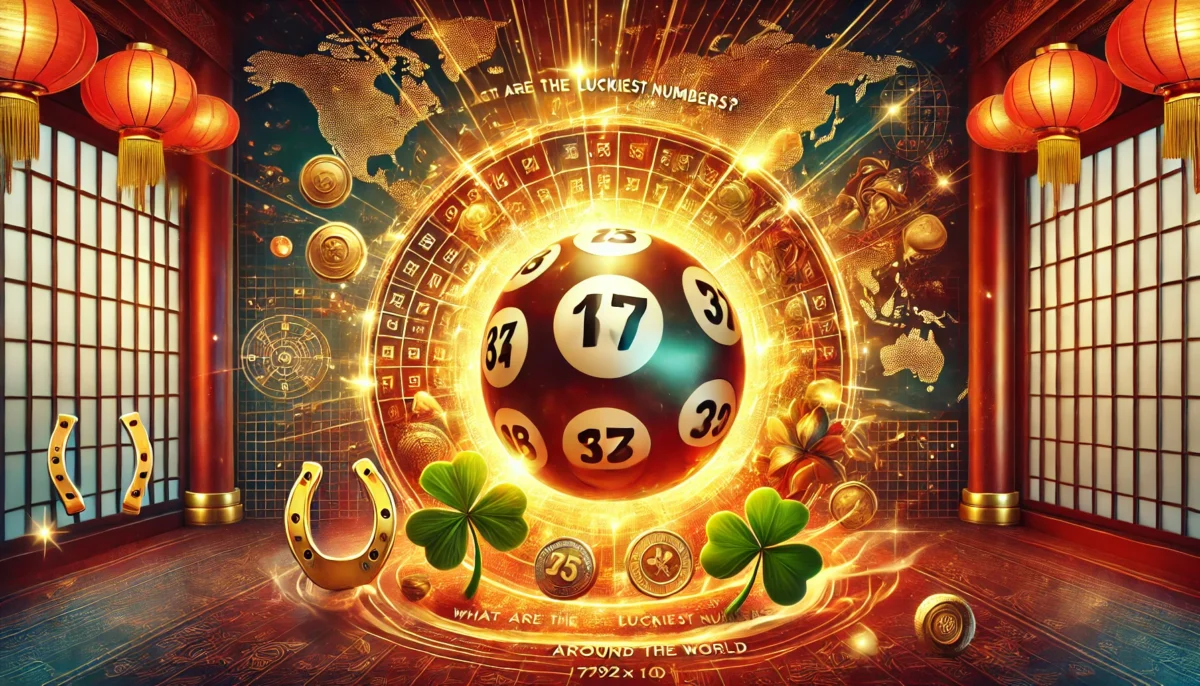Numbers hold a special place in cultures worldwide, often imbued with meanings and beliefs that transcend their mathematical significance. For lottery players, picking the “right” numbers can feel like a mystical art rather than a game of chance. From cultural traditions to personal rituals, let’s explore the luckiest numbers and the fascinating superstitions that influence lottery picks around the globe.
Why Do People Believe in Lucky Numbers?
The idea of lucky numbers stems from cultural traditions, personal experiences, and even historical significance. Lottery players often choose numbers they believe are connected to good fortune, whether due to cultural beliefs or personal milestones like birthdays and anniversaries.
While lottery outcomes are determined by chance, the belief in lucky numbers adds an extra layer of excitement and meaning to the game.
1. The World’s Luckiest Numbers
7: The Universal Favorite
- Why It’s Lucky: Seven is considered lucky across many cultures due to its presence in nature and religion. There are seven days in a week, seven colors in a rainbow, and seven wonders of the world.
- Lottery Usage: Many players consider 7 their go-to number, often pairing it with other multiples like 14 and 21.
8: A Symbol of Prosperity in Asia
- Why It’s Lucky: In Chinese culture, the pronunciation of the number 8 sounds like the word for wealth or fortune (發, “fa”). It’s also associated with balance and harmony.
- Lottery Usage: Combinations like 88 or 888 are especially popular among players in China and other parts of Asia.
3: A Number of Harmony
- Why It’s Lucky: Across cultures, 3 is seen as a symbol of balance and completeness (e.g., the Trinity in Christianity, or “third time’s a charm”).
- Lottery Usage: Players often pair 3 with other single digits to create balanced ticket combinations.
9: Longevity and Completeness
- Why It’s Lucky: In Chinese culture, 9 is linked to longevity and eternity. It’s also associated with power, as it was historically used in the design of imperial palaces.
- Lottery Usage: 9 is commonly used in combinations for those hoping for long-lasting wealth.
13: Unlucky or Lucky?
- Why It’s Lucky: While 13 is considered unlucky in Western cultures (triskaidekaphobia), it’s viewed as a fortunate number in places like Italy, where it symbolizes prosperity and life.
- Lottery Usage: Players who embrace its rebellious reputation often pick 13 as a wildcard number.
2. Personal Lucky Numbers
Lottery players often draw on personal experiences to select their numbers. Here are some common methods:
- Birthdays and Anniversaries: Dates associated with loved ones or special events often make it onto lottery tickets.
- Address or Phone Numbers: Familiar numbers tied to home or contact details are common picks.
- Significant Life Events: Numbers tied to milestones like graduation years, first jobs, or wedding dates carry sentimental value.
3. Lottery Superstitions Around the World
In the United States: Lucky Charms
Many Americans bring good luck charms—like rabbit’s feet, four-leaf clovers, or lucky coins—when buying tickets. Some even have “lucky stores” where they always purchase their tickets.
In Japan: The Power of 7 and 8
Numbers 7 and 8 are considered exceptionally lucky in Japan. Players also avoid 4 (associated with death) and 9 (pain) due to their negative connotations in Japanese culture.
In Italy: Dreams and Numbers
Italians often use a practice called “La Smorfia,” interpreting dreams as numbers. Based on a dream’s theme, players choose corresponding numbers believed to bring good luck.
In India: Spiritual Significance
In India, numbers tied to spiritual texts and astrology guide lottery picks. The number 108, considered sacred in Hinduism and Buddhism, is often chosen for its divine associations.
In China: Feng Shui and Numbers
Chinese players use feng shui principles to choose numbers that attract wealth and harmony. They avoid unlucky numbers like 4, which sounds like “death,” and gravitate toward 6 (smooth progress) and 8 (prosperity).
4. Strange Lottery Rituals
Beyond picking numbers, players engage in unique rituals they believe will bring good fortune:
- Ticket Folding: Folding tickets in a specific way is believed to enhance luck.
- Lucky Timing: Some players swear by purchasing tickets on specific days or times, such as New Year’s Day or during a full moon.
- Clothing Choices: Wearing a “lucky” outfit when buying a ticket is common in many cultures.
5. Lucky Number Combinations
Some players believe in combining numbers for enhanced luck. Common strategies include:
- Repeating Digits: Sequences like 11, 22, and 33 are believed to amplify good fortune.
- Patterns: Choosing numbers in diagonal, horizontal, or vertical patterns on the lottery slip.
- Symmetry: Balanced combinations like 17, 27, and 37 are thought to create harmony.
Does Picking Lucky Numbers Improve Your Odds?
The odds of winning the lottery are the same for all number combinations, whether they’re lucky or randomly selected. However, choosing meaningful numbers can make the experience more enjoyable and personal. After all, playing the lottery is as much about hope and excitement as it is about the possibility of winning.
Conclusion
Lottery numbers hold a special place in the hearts of players around the world, reflecting cultural beliefs, personal superstitions, and age-old traditions. While no number can guarantee a win, the idea of lucky numbers adds a layer of fun and meaning to the game. Whether you choose 7 for its universal charm or 8 for its promise of prosperity, the magic of the lottery lies in dreaming big.
So, what’s your lucky number? The next time you buy a ticket, you might just hit the jackpot!
